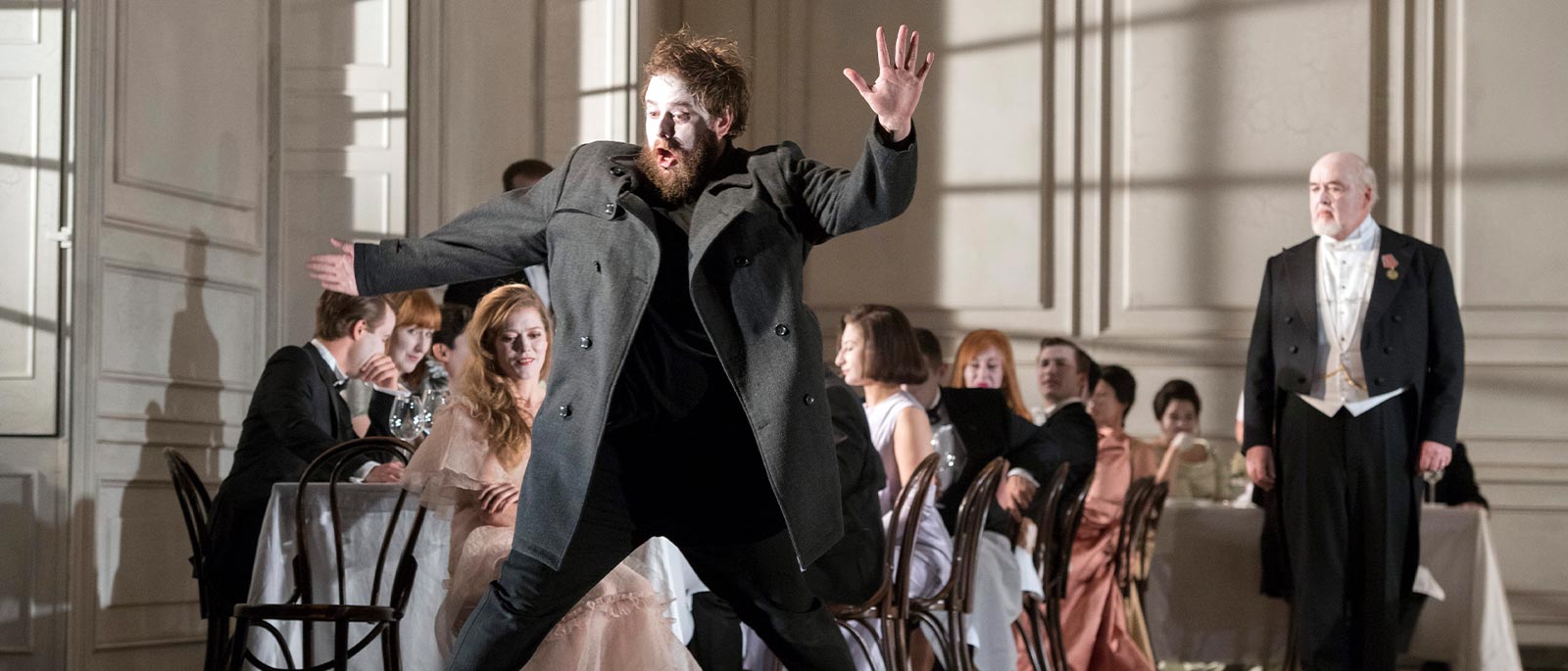
Courtly Life in the Middle Ages
Much of the drama and intrigue in Hamlet revolves around the dynamics and expectations of courtly life in the late Middle Ages. The entire story takes place within Elsinore Castle; Hamlet’s friends, enemies, and love interests are all members of the royal court, a group that included not only the monarch and members of his family but also courtiers, bodyguards, members of the nobility, individuals with court appointments, emissaries, and visitors from other kingdoms.
Life at court could be glamorous and exciting. According to historical sources, medieval royals enjoyed lavish food and drink and dressed in expensive clothes and furs, adorned with elaborate jewels, which set them apart from the rest of society. Royals pursued courtly leisure activities such as tournaments, hunting, chess, and gambling (note the wagers discussed by Rosencrantz and Guildenstern in scene 11). Courts supported the arts by hosting performers, as we see in scene 5 of the opera, and by employing court musicians. The activities and possessions of the court were not merely luxuries but expressions of the court’s power and legacy. However, privilege had its limits. The bounty of courtly life came with certain expectations, the strain of which we can see affecting Hamlet, with devastating consequences.
Hamlet is trapped between his duty to his father and his duty to the Danish royal court. As a prince, he serves the king, but as a son, he seeks to avenge his father’s death, which requires killing the current king. Ophelia, too, is bound by her limitations as a woman and as a member of the court, and she is further oppressed by competing demands for her loyalty that affect her relationship with Hamlet. On the one hand, she must be dutiful to her father, who wants her to stay away from Hamlet. On the other hand, she still feels love for the prince who, prior to “going mad,” pursued her romantically “in honorable fashion.”
When Ophelia is pressed into service by her father to find out what is bothering Hamlet, the prince sees it as a betrayal (given her father’s loyalty to Claudius). Further tormented by his own competing loyalties, Hamlet becomes cruel to Ophelia, pushing her away. He criticizes her for misrepresenting herself and denies ever having loved her. His rejection, combined with his accidental murder of her father, leads Ophelia to drown herself in a nearby brook. Yet even Hamlet cannot escape the fatal consequences of courtly duty, dying at the hand of Laertes, who has sworn to avenge his own father’s wrongful death.
Critical Inquiry
In what other ways do personal and political duties interfere in the story of Hamlet? Which is more important to you, loyalty to community or loyalty to family? Does Hamlet really love Ophelia? How might their relationship be different if they were normal people and not members of a royal court?